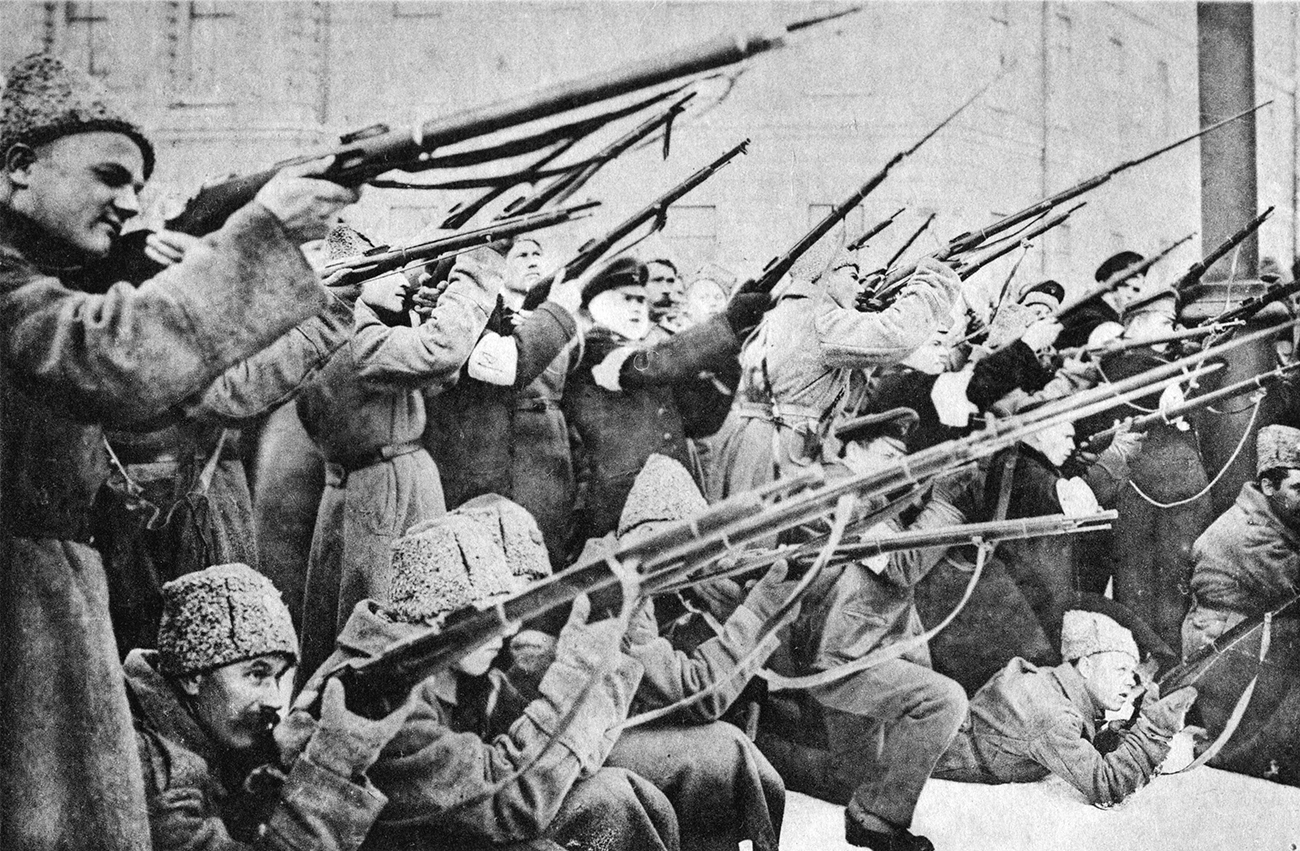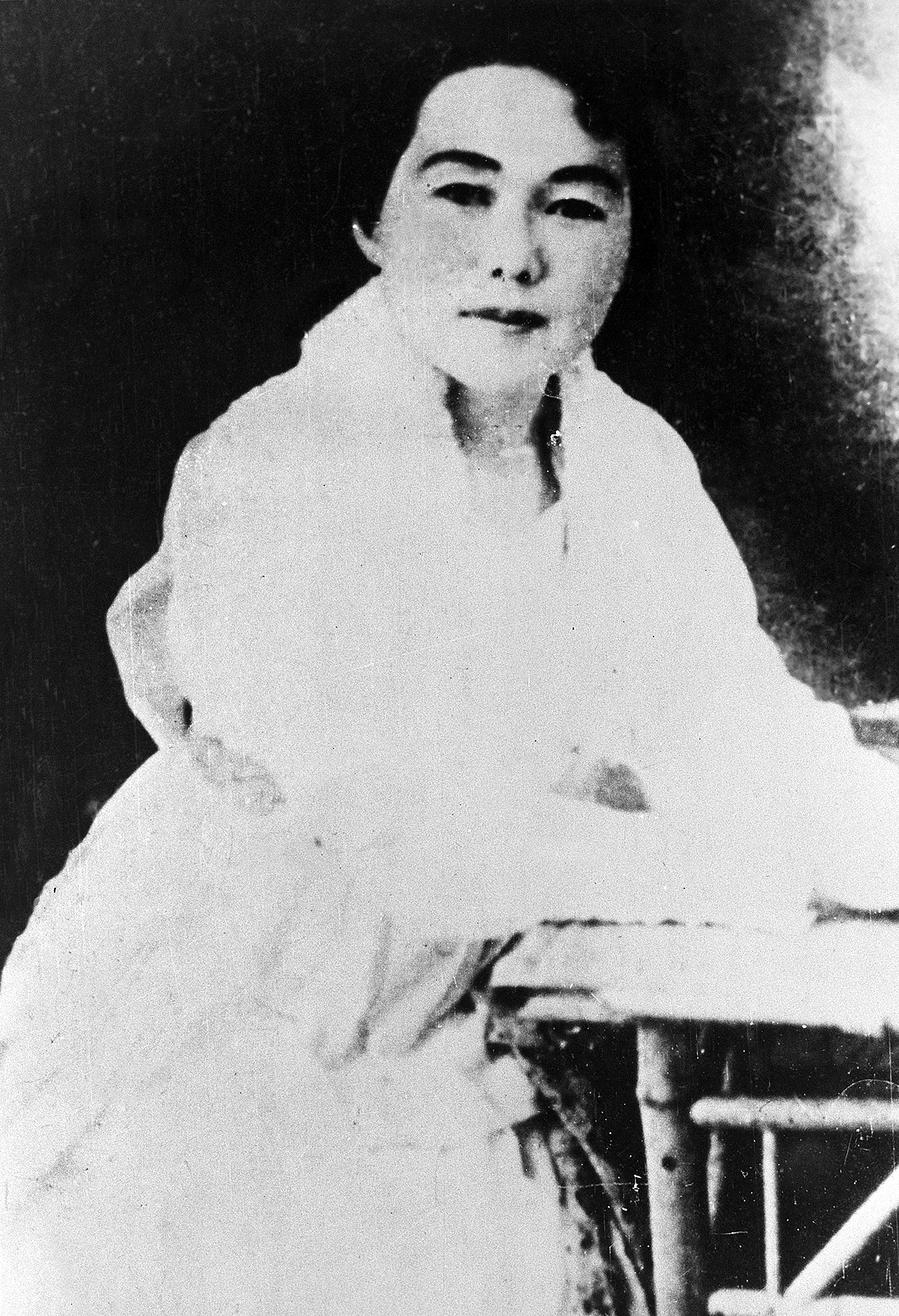
Alexandra Stankevich (Kim Aerim) was executed in 1918.
Global Look PressIn 1918 the Russian Far East plunged into a bloody civil war. Both communist and anti-communist forces fought with great brutality, executions being almost a part of everyday life. One of such executions occurred at early dawn of the 16th of September, 1918 in Khabarovsk, the largest Russian city on the Amur river. On that day a group of the “red” (communist) prisoners was shot by the “white” (anti-communist) soldiers.
Among the victims there was a woman with a Polish-sounding name of Alexandra Stankevich. But the name was misleading: born Kim Aerim, she was an ethnic Korean and she seems to be the first Korean worldwide to become a communist activist.
The reliable data on her life remained scarce until recently when efforts of Russian and Korean scholars (Boris Pak, Bella Pak and Kim Cholhun) shed some light on the biography of this remarkable woman.
Alexandra’s father, known under his Russian name as Piotr Kim, settled in Russia as early as 1869. He mastered Russian and Chinese, and converted to the Orthodox Christianity. When in 1885 Alexandra was born, Piotr Kim was a well known professional translator and interpreter.
In 1896 Piotr Kim got an interpreter’s job at the Eastern Manchurian Railway, a large Russian construction project. Alexandra began to attend regular Russian school – a rather unusual thing to do for a Korean girl at those days. At the construction site, Piotr Kim became friends with Jozef Stankevich, a Russian railway technician of Polish origin.
When in 1902 Piotr Kim died suddenly, the Stankevichs took care of Alexandra and helped her to enter a pedagogical college in Vladivostok.
In her college years Alexandra was influenced by the ideas of the socialist left which were very popular among the Russian students of the era. After the graduation she worked as a teacher. Around this time, Alexandra married son of Jozef Stankevish (the marriage ended in divorce in 1910 or soon afterwards).
In 1915 Alexandra got a job as a Chinese and Korean language interpreter in the Ural mountains where Chinese and Korean workers were employed by timber industry. There in early 1917 she joined the Bolshevik (Communist) party.
 Alexandra Stankevich (Kim Aerim)
Alexandra Stankevich (Kim Aerim)
For the party organizers she must have looked like a godsend gift: a young, well educated and devout woman who was fluent in two major languages of East Asia, had Asian looks but also spoke flawless educated Russian. Alexandra Kim was immediately sent to Far East where her task was to create the Communist cells among the local Koreans.
When in October 1917 the Communist party took power, she was appointed commissar for foreign relations of the Khabarovsk communist administration. When the centralized Russian state was falling apart, this was not a symbolic position: in her capacity she had to make serious diplomatic decisions.
One should not take too idealistic approach to her actions at those days: for example, it is known that Alexandra Kim demanded death penalties for “counter-revolutionary officers”. It is easy to blame her for this, but it was a civil war, a time of daily brutality. After all, Alexandra Kim’s “white” opponents were not forgiving and kind-hearted, too – as her fate testified.
In August 1918 Khabarovsk was besieged by the anti-communist forces and had to be evacuated. The local communist leaders boarded a river steamer, in hope to leave doomed Khabarovsk.
The steamer was intercepted and all communist leaders, including Alexandra Kim, were put under arrest and soon summarily executed. So ended the life of a person who can be seen as a forerunner of both Korean communism and Korean feminism.
And quiet flows the Han is a blog about the historical and contemporary interactions between Russians and Koreans. In most cases, but by no means always, political issues are studiously avoided by the author, whose major interest is everyday life, culture and the lives of individuals. In this blog, Dr. Andrei Lankov explores how Russian culture was (and is) seen in Korea. He talks about migration, inter-marriage and even cuisine.
Dr. Andrei Lankov, born in 1963, is a historian specializing in Korea. He is also known for his journalistic writings on Korean history. He has published a number of books (four in English) on Korean history. Having taught Korean history at the Australian National University, he now teaches in Kookmin University in Seoul.
If using any of Russia Beyond's content, partly or in full, always provide an active hyperlink to the original material.
Subscribe
to our newsletter!
Get the week's best stories straight to your inbox